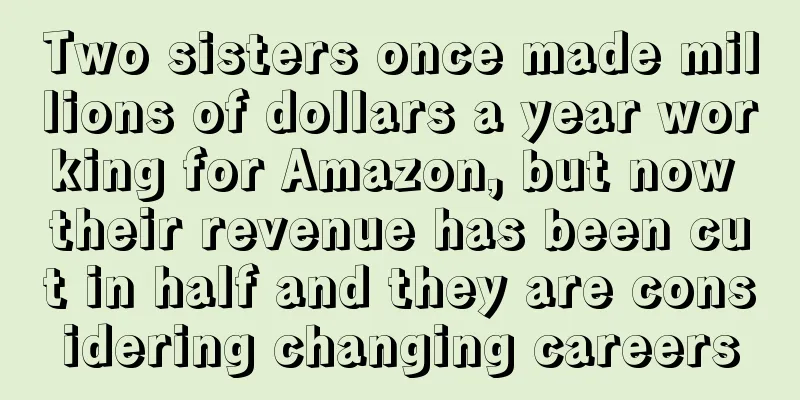Too sudden! Another star unicorn company filed for bankruptcy

|
Recently, another star unicorn company collapsed.
Bird files for bankruptcy! Market value plummets 99 %
It is understood that Bird , the American shared electric scooter unicorn company, has officially filed for bankruptcy protection in Florida.
The reason for the bankruptcy is that the current capital market conditions are difficult. At the same time, Bird's market share in the shared electric scooter track has been snatched away by competitors, and the company's revenue has declined significantly since winter.
It is understood that Bird has reached a restructuring agreement with creditors, including the sale of bankruptcy assets . Bird said that during the restructuring process, the company will operate normally, and Bird's Canadian and European businesses are not within the scope of the bankruptcy application.
The company has also obtained $25 million in debtor-in-possession financing from lenders , including MidCap Financial, a subsidiary of Apollo Global Management , to support Bird's restructuring.
In 2017, Travis Vander, a former Lyft and Uber executive Zanden founded Bird in the United States .
At that time, shared bicycles were very popular in China, but encountered difficulties in the United States. So Travis had the idea of creating a shared mobility tool that is more suitable for the United States , so he founded Bird , a shared scooter and electric vehicle company .
(Image source: Bird official website)
Bird is committed to building an environmentally friendly mode of transportation and advocating low-carbon travel . Users rent electric scooters by using the APP corresponding to the deployed electric scooters . After use, the user can end the trip by parking the vehicle on the street.
In September 2017, Bird launched its first batch of shared electric scooters in California, USA, with a starting price of $1 and a charge of 15 cents per minute of use. To use them , you only need to download the App and scan the QR code .
Bird's shared electric scooters became popular in the United States as soon as they were launched, becoming one of the most popular "last mile" solutions . With rapid development, Bird 's business has expanded to 350 cities around the world .
The popularity of Bird's shared electric scooters has also attracted the attention of the capital market .
In less than a year , Bird completed four rounds of financing totaling more than US$400 million , becoming the fastest startup to obtain the title of "unicorn" at the time .
In June 2018 , Bird was valued at $2 billion .
In 2019 , Bird received US$275 million in financing from investors including CDPQ and Sequoia Capital , and Bird's valuation rose to US$2.5 billion .
During its period of rapid business development, Bird also spent approximately US$25 million to acquire electric scooter and bicycle operator Scoot Networks, expanding its business operations to San Francisco.
It is understood that Bird has obtained investment support from many well-known investment institutions. In addition to Sequoia, there are also well-known venture capital firms such as CDPQ, Accel, B Capital, CRV, Sound Ventures, Greycroft, e.ventures, Craft Ventures, Index Ventures, Valor, Goldcrest Capital, Tusk Ventures, and Upfront Ventures.
After receiving support from multiple investment institutions, Bird achieved leapfrog growth and successfully went public.
In November 2021 , Bird merged with blank check company Switchback II at an initial valuation of US$2.3 billion and was listed on the New York Stock Exchange.
But now, Bird ’s market value is only about 3 million US dollars, which has evaporated by about 99.85% compared with the time of listing.
In September this year , Bird was delisted from the New York Stock Exchange because its stock price was too low to meet listing rules .
Why did the once popular Bird end up in its current situation?
Although the sharing economy has been booming around the world in the past few years and has been integrated into all areas of life, it is considered a money-burning industry with huge initial investment, high operating costs, and a long payback period.
The Information once calculated the cost of each electric scooter for Bird , which is about $551. In order for Bird to make a profit, an electric scooter needs to be used 5 times a day for 5.25 months. However, in reality, the service life of shared electric scooters is only 3-6 months, which leads to Bird's continuous losses.
Especially in recent years, due to the impact of the epidemic, the number of passengers on all public transportation has dropped sharply, and shared electric scooters have also been directly affected, with a large number of users lost.
At the same time, with the entry of shared scooters such as LimeBike, Spin, and Link , Bird 's remaining market space has also been squeezed out by competitors.
Moreover, due to the frequent safety accidents involving shared scooters , many cities in the United States have established restrictions and bans on shared scooters . At the same time, they also control the number of scooters put into use and require scooter companies to pay taxes.
Earlier this year , Paris residents voted to ban the rental of electric scooters, and even closed the largest market in the local industry. On September 1 this year , the operation of shared electric scooters was officially banned in the Paris city area, but electric scooters used by citizens themselves were not affected .
Bans in several cities in the United States and Paris, France have also had a certain impact on the shared electric scooter industry.
It should be noted that the frequent safety accidents involving shared scooters have also caused Bird to be embroiled in lawsuits.
According to Bird's bankruptcy filing , the company is involved in more than 100 lawsuits , most of which are related to personal injury claims filed by users when they were involved in accidents while riding Bird scooters. Bird needs to compensate local authorities for such lawsuits in most cities where it operates , so Bird incurs a large amount of litigation costs every month.
Under various difficulties, the shared scooter industry has become increasingly difficult, and Bird has been caught in a vortex of losses.
According to the financial report data released by Bird , the company's revenue in the second quarter of 2023 was US$48.3 million , a significant decline from US$66.8 million in the same period last year; the company's net loss was US$9.3 million , compared with a net loss of US$320 million in the same period last year .
According to a document filed by Bird last month, the company's net loss reached $ 73.4 million in the first nine months of 2023. As of the filing date, Bird had unrestricted cash and equivalents of $10.2 million. Last year, Bird 's revenue was $244.7 million and its net loss reached $358.7 million.
Bird has assets and liabilities of about $ 100 million to $500 million , according to documents filed in a bankruptcy court in southern Florida . Dozens of U.S. cities are creditors, as well as Amazon Web Services, fleet management software maker Zoba, data analytics company Palantir and Chinese scooter maker Ninebot . Judging from the current market situation, this chill has spread to the entire shared electric scooter industry.
On the same day that Bird declared bankruptcy , its competitor, American shared electric scooter company Micromobility, was delisted from the Nasdaq because its stock price was too low .
Just in November, another Bird competitor, European electric scooter brand Tier Mobility, carried out its third round of layoffs.
LINK electric scooter maker Superpedestrian will officially shut down its U.S. operations at the end of December this year.
The shared business model has problems such as high operating costs and difficult management. The company needs to overcome many difficulties if it wants to achieve sustained profitability .
Since the beginning of this year, many North American unicorn companies have collapsed one after another. The decline of the shared scooter industry and the bankruptcy of Bird are also a warning to other companies . In the ever-changing market, it is imperative to adjust operating strategies in a timely manner and find more effective profit models . Bankruptcy Unicorn Companies |
>>: Sellers beware! Another common word has been trademarked
Recommend
From calling for a rescue to declaring bankruptcy, Quanyi took only 5 days
Latest news! Shenzhen Quanyi Cross-border Supply ...
What is Chengdu Shixiao Media Technology Co., Ltd.? Chengdu Shixiao Media Technology Co., Ltd. Review, Features
Chengdu Shixiao Media Technology Co., Ltd. was es...
A tree was applied for reorganization by its creditor. Is this its chance for rebirth?
Following Cross-Border Link, another cross-border...
What is Umbrella Fund? Umbrella Fund Review, Features
Umbrella Fund focuses on investing in and developi...
What is Unity Ads? Unity Ads Review, Features
Unity Ads is a cross-platform 2D/3D game engine d...
What is takasago-fluidics? takasago-fluidics Review, Features
Takasago-fluidics is a small manufacturer of corro...
New trend! Livestreaming is also popular in Europe
As people become more and more dependent on mobil...
What is Overseas Consultant Help? Overseas Consultant Help Review, Features
Overseas Consultant Helper is a one-stop service c...
What is Skyword? Skyword Review, Features
Skyword is a platform focused on content creation....
What is Zhiying United? Zhiying United Review, Features
Zhiying United E-Commerce Company is an integrated...
Hidden fatal hidden dangers! More than 11,000 products were urgently recalled
Product quality issues have always attracted the ...
Starting today, Amazon has adjusted multiple charges!
Amazon will adjust a number of logistics and ware...
What is Hermo.my? Hermo.my Review, Features
Hermo.my is a Malaysian beauty e-commerce website ...
What is Meiyunda Cross-border E-commerce? Meiyunda Cross-border E-commerce Review, Features
Meiyunda Cross-border E-commerce Co., Ltd. was es...
Sales volume drops again, price war intensifies, and Amazon sellers go into a frenzy!
Since May this year , many sellers have reported ...









